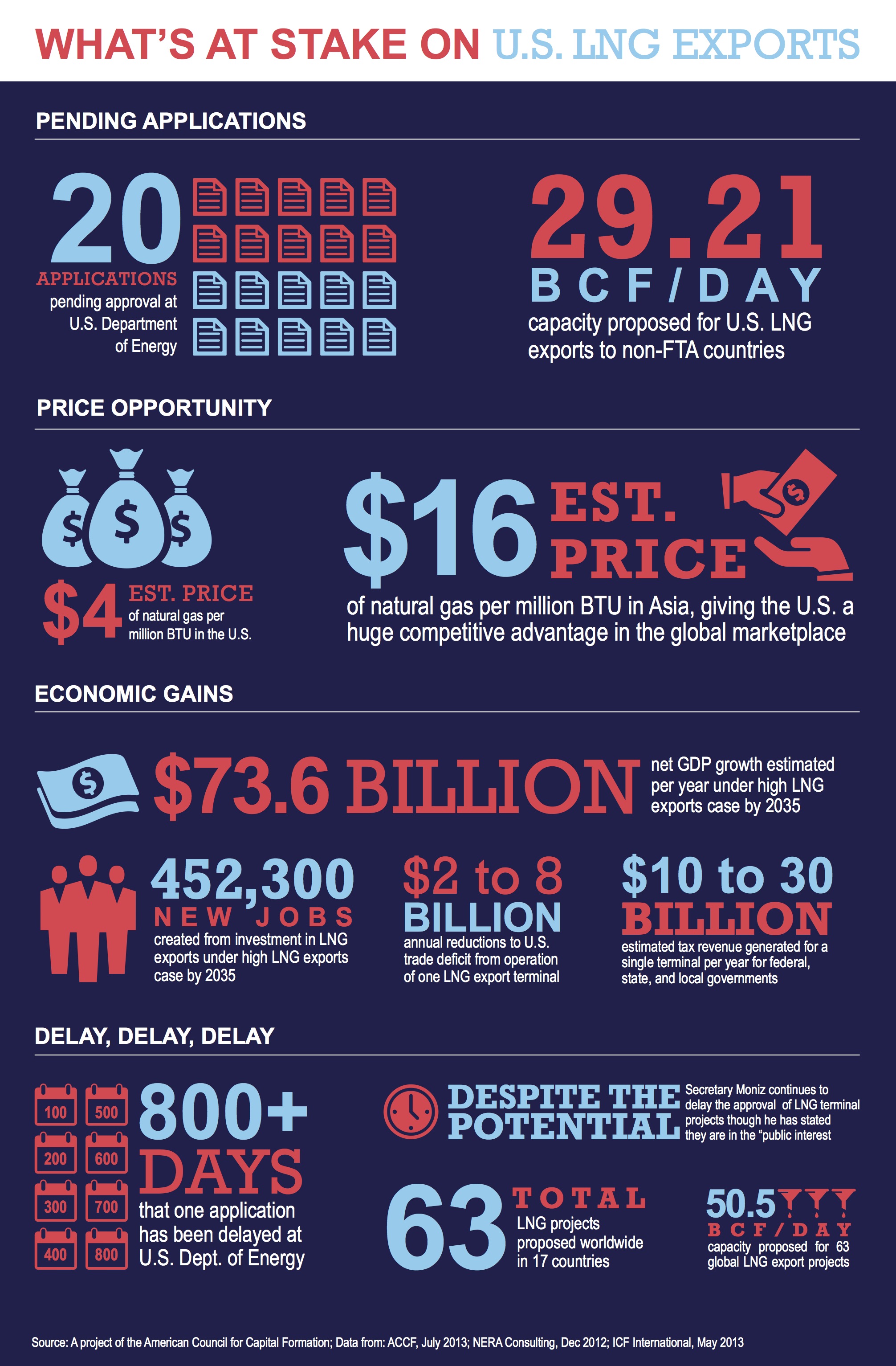Last week the U.S. Department of energy approved a third application to export LNG after two years of regulatory limbo. With the approval of Lake Charles LLC’s LNG exports to non-FTA countries, the U.S. will now have the ability to export up to 5.6 billion cubic feet per day of natural gas.
Opponents to natural gas exports claim this export capacity represents a “sweet spot” for natural gas exports – although a government study concluded no such sweet spot exists. To the contrary, every major study has found that the more LNG is exported, the better for America. In fact, expanding natural gas exports will be an economic “win” for the United States.
“Across all these scenarios, the U.S. was projected to gain net economic benefits from allowing [liquefied natural gas] exports. Moreover, for every one of the market scenarios examined, net economic benefits increased as the level of LNG exports increased,” concluded a 2012 major study commissioned by the Energy Department (DOE).
The U.S. produced an average of 65.9 billion cubic feet of natural gas per day in 2012, and the global market for natural gas expected to grow over the next decade. With 19 applications still under consideration, the slow permitting process at the Energy Department is undermining the America’s ability to develop and export our natural gas on the global market. The infographic below highlights the high stakes of prolonged permitting delay:
Long term, the biggest challenge for U.S. LNG markets is competition from the 63 international projects to export gas. The Energy Department’s fragmented approach to approving applications risks ceding America’s natural gas energy advantage to other exporting nations.
To learn more about the status of the outstanding LNG export applications, visit www.actonlng.org.







